Around the Furnace Review | In modern society, those floating senses of dignity

"Monthly Comments" is a comment column of Weiruo, which is currently written by members of the Weiruo review team. The content of the comments represents the author's personal views only. And due to limited space, the following short comments are only a glimpse of the leopard.
#1 Whistleblowing as a Discourse Practice
Text|Ronnie
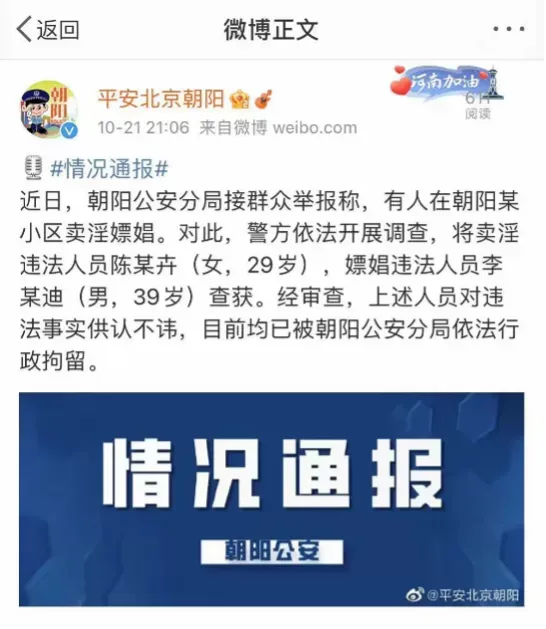
Whether it's the earlier rape incident of Wu Yifan or the recent incident of Li Yundi's whoring of prostitutes, the public opinion aroused on the Internet does not seem to be as clear as the law's judgment of right and wrong. Disputes among netizens revolved around topics such as public/private morality, rights/duties, etc. One party believed that the public's "reporting according to the law" was a legitimate act, and that they should be punished if they did something wrong; undermined the foundations of public morality.
In fact, the comments of both parties are reasonable. The supporters' statements emphasize the role of the law and that reporting, as an extension of the law, is conducive to social good; while the critics repeatedly remind that the justice of the former is not in any circumstances. The next is so absolute. However, what is easy to overlook in the process of the two sides constantly drawing the line between the law and the individual is that reporting has never been a neutral tool or path. Whether it is "reliance" or "use", it is only regarded as a process in the execution of the procedure. a screw. On the one hand, it will simplify the social consequences of whistleblowing, and lay a layer of one-way narrative on the surface of complex individual interaction facts; on the other hand, it will continue to strengthen the absoluteness of whistle-blowing behavior itself, making discussions repeat in a binary framework, such as Illegal/not illegal, public/private, power/freedom, etc., reduce the connection between them and the possibility of reflection.
Perhaps a more appropriate way of understanding is similar to Foucault's reflection on the "truth system": to regard reporting as a discursive practice, not only to examine its right and wrong in the current context, but also to examine why it presents such a situation in the current context. Judgment results, which are closely related to the source of the legitimacy of the report, the underlying value judgment, and the relationship between the subject and the object. As far as recent events are concerned, the reporting subject is actually composed of multiple parties. It is not only composed of the most intuitive subjects who practice whistle-blowing behavior, that is, the masses of Chaoyang District; ”, or the media and public authorities that have the power to delete or hide “inappropriate speech.” Therefore, they have formed a more complicated relationship with Li Yundi, the target of the report, rather than what the law reveals about right and wrong, and the good and evil of human judgment. On the other hand, the sources of legitimacy reported in this incident are also complicated. In addition to the more visible laws and ethics, the entertainment industry and the art world have also given their own responses: the former are major programs, artists and Li Yundi. The latter made a reflection and criticism of his past and present from the level of "artistic morality". It can be found that behind the "reporting" that can easily overwhelm individuals, the logic of power, the logic of legal procedures, the logic of the market, and the norms of the professional field are mixed together, and the value judgments they make have overlapping parts. But there are also conflicts.
So how do you come to a conclusion after the complicated analysis above? "Complex" may be the easiest and most appropriate answer, but it's worth noting that there is, in fact, an ordering in this mix of parties. A typical example is that the affirmation of Li Yundi's ability and achievements in some professional fields gave way to the denial of him by power, law, and public opinion logic . Not to mention that after Zhao Wei's accident, her masterpiece "Han Zhu Ge Ge" was directly removed from the shelves. This ranking itself is also a reflection of the current social structure, and perhaps only by establishing a perception of these rankings between repeated “reporting incidents” can a more appropriate understanding and judgment be reached.
#2 The Class Colors Behind "Standard" English
Text|Alisha
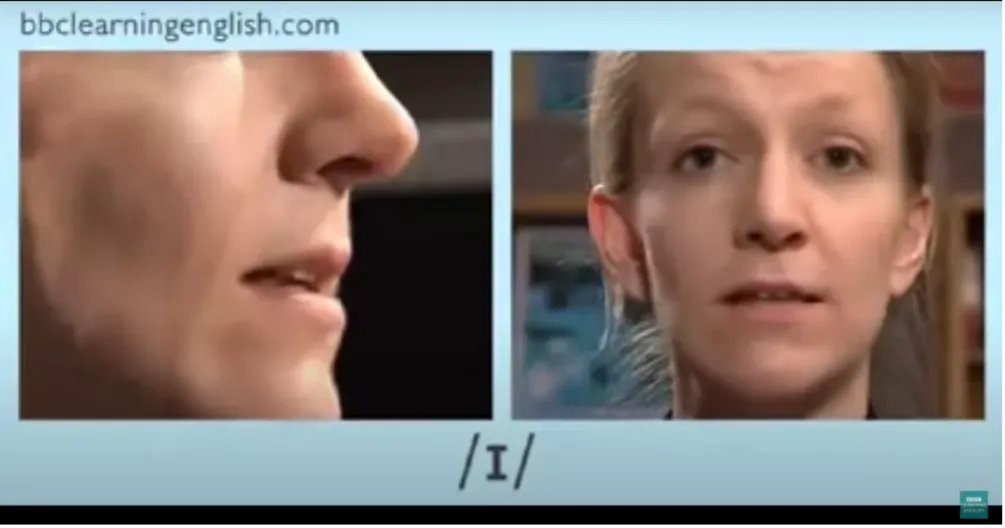
A few months ago, a video of "How are the students in the High School Affiliated to the National People's Congress" made a hot search. In the video, students from the High School Affiliated to Renmin University of China were interviewed on the street in clear and fluent English. In the comment area, netizens not only praised the students' English ability, but also focused on the rich family background of these students and the "privilege" that came with them. The students' proficiency in English is of course the focus of the video, but it's also worth noting that these students almost invariably have "beautiful" accents. It is worth pondering that even if netizens know nothing about the personal information of these students, just based on their English, they can infer their living standards and naturally associate them with the wealthy and privileged class. It can be seen that the mastery of English, especially the wording and tone of voice, has been given a classy color and has become a new personal label.
For Chinese who take English as a compulsory course, it seems that English "accent" has been a topic that cannot be avoided since childhood. Everyone may have learned more or less courses such as "Standard American Pronunciation" and "Standard British Pronunciation". When the teacher played these videos in the classroom, the students also took the content, such as mathematical formulas and grammar, as the default established rules, and absorbed them without much thought. In this process, the overlooked question is: Who is the so-called "standard" relative to? If we think about it carefully, we see that most of these course videos were taught by white people. Under such subtle influence, the white accent in a specific area is gradually associated with good education and good background in our imagination; therefore, when we think of elegant British accent and fashionable American accent, what comes to our minds The image that emerges will not be of a black man in Brixton or Harlem, but of a phantom of a white middle-class graciously drinking afternoon tea in Mayfair or attending an academic seminar in Boston.
As we continue to imitate and practice "standard" English accents following these instructional videos, we are also putting a layer of dye on ourselves. We changed the way we express ourselves in our native language, placing and functioning our lips, teeth, tongue and vocal cords in a form acceptable to middle-class white people. What we assimilate and internalize, in addition to the tone of voice, is a hierarchy . This chain of discrimination emerges from an unequal historical relationship and continues to perpetuate a vicious circle.
For example, when a person has "standard" English, he will be complimented by things like "Your pronunciation is really beautiful/advanced". In contrast, English with a strong "accent" will be criticized and ridiculed harshly. This phenomenon can be seen in netizens' nitpicking about public figures' English proficiency. From Wang Yuan's English speech at the United Nations, to Zhao Liying's English promotional video for luxury brands, to Lei Jun's English speech at Xiaomi's press conference... These not-so-standard pronunciations have been spoofed by netizens over and over again— — The Chinese accent, as our mother tongue, has become a mark of shame and ridiculousness.
That's not to say we're completely dismissing the point of practicing accents. There is nothing wrong with having a preference and appreciation for a particular accent out of personal interest; what we need to deny is the singularity of language. When Chinese and English are blended, what should be opened should be a door to creativity in a new language field . Like Foucault's archive, the change of language records the history of human collective experience and knowledge, which is never and should not be linear and one-way. Unbundling accents from superiority and privilege, it communicates the future and the past, originating from imitation, but drawing on the power of development from diverse grammars and accents. And we need not be ashamed, because it is the fusion and intersection of voices that record the pulse and turmoil of our globalized age.
#3 When the Media Becomes a Virtual Battlefield: A Brief Analysis of Xinhua News Agency's Reports on Taiwan Issues
Text | Fred
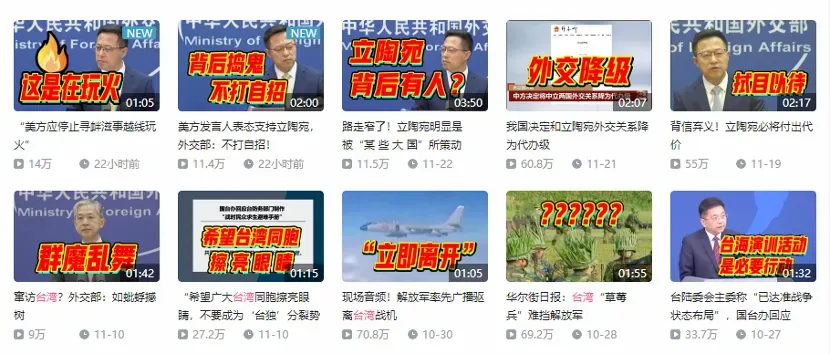
As the largest video website in China, in recent years, official media such as Xinhua News Agency and Global Website have successively entered Bilibili to produce video content. I have taken the Taiwan issue-related reports published by Xinhua News Agency on station b in 2021 as an example to represent the official media’s news reports on political issues. This article will put aside the perspective of "identity or not", and focus on what kind of information the official media wants to convey, what purpose they want to achieve, and how to achieve this purpose.
Among the 41 relevant reports, only 6 are purely news reports about objective facts, and the rest are mainly opinion statements. These views are basically expressed through the remarks of the spokesperson of the Ministry of Foreign Affairs or the country's documents, such as letting the Taiwanese fighter jets "leave immediately", Lithuania "paying the price", "Taiwan is a part of China" and so on. When stating their views, state media tend to express a tough stance, or even a warning. These tough-minded words will appear on the cover of the video in bright red lettering. For non-opinion-based reports, state media will select negative news about Taiwan's military or positive news about the mainland's military.
Putting these reports together, they share the same logic and purpose: to emphasize that Taiwan is the first part of China, and the two sides of the Taiwan Strait must be unified. So, together they constitute a media event. Media events refer to the purposeful output and widespread dissemination of an organization around a social issue. So, how does the official media achieve this goal through media communication?
To put it simply, the government has shaped media platforms such as station b and Weibo into virtual battlefields through official media reports. On this battlefield, first the enemy was clearly divided. Of the 41 reports I picked, 21 were clearly directed. The United States, Japan, Lithuania and other parties that support Taiwan are clearly defined as enemies. Secondly, the official media also emphasized the rationality of the potential war, because "Taiwan is part of China" and "China must be unified, and it is bound to be unified." In fact, the emphasis on rationality has been going on for decades. The media has portrayed cross-strait reunification as an idealized social picture. This vision has evolved into a kind of political correctness.
An interesting point is that the "enemy" on the virtual battlefield does not actually exist on this battlefield. The so-called forces and even the people in Taiwan, very few people use Weibo, etc., not to mention the local people in the United States, Lithuania, and Japan. This means that "enemy" is an abstract role established by official media on platforms such as station b . Whether it is the report itself, or the reading volume, comments and likes of the public, the "enemy" will not see it, nor will it affect the trend of public opinion on an international scale. That is to say, the significance of the establishment of the virtual battlefield mainly lies in the unity of the internal front and the establishment of pre-war ideological preparations, rather than the external public opinion war. For example, the language used by official media on external social media such as twitter and youtube is still Chinese, and the reading volume is usually in the single or ten digits, and the circulation is generally low. This also confirms the above point.
At the same time, the establishment of virtual battlefield has also led to two consequences. First of all, due to the clear division between enemy and self, there will be serious stereotypes between people on both sides of the strait, and there will be a lack of real communication. Second, while the official media has been instrumentalized, it has gradually lost its medium. Its definition has become blurred, and it is difficult to say whether official media is a tool first or a medium first.
In general, the mainland's reports on Taiwan in recent years are not just a simple statement of position, they are media events that are purposely produced and disseminated. In media events, media platforms have become virtual battlefields. Through strategies such as defining enemies and rationalizing potential wars, official media has allowed the public to reach a consensus that both sides of the strait must be unified .
In the process of reading and analyzing official media reports, jump out of the "right" or "wrong", "good" or "bad" mindset, from "what is the purpose of doing this", "how to achieve this purpose" and " What will happen next?” and other perspectives, may be able to make valuable thinking happen.
#4 "Old age" is free to fly?
Text | Year 2 of Yangcheng Lake Foreign Language Vocational and Technical College

Last week I got my first Airline Frequent Flyer Gold Card in my life.
There are of course multiple reasons for this, and actually flying 30 times in a year is still too much of a luxury for a student like me who was squeezed by the primary school term. Frequent flight segment bonuses, Shanghai’s special geographical location—of course, there are also air tickets at the price of slashed cabbage (although fuel surcharges are now added, and the cost has risen sharply). The reduction in travel costs is of course welcome: if you have seen Pudong Airport at one o'clock in the middle of the night, the crowded scene seems to have become more lively under the epidemic. Business travelers in suits and leather shoes are now mostly pedestrians with large bags and small bags. However, in terms of my experience in the more than one year after the epidemic, the most aviation travel companions are the elderly.
Of course, this is not surprising. The first case of the epidemic in Ejina Banner was discovered by the "Kochi" couple in Shanghai. His actions are not listed for the time being, but the enthusiasm of Shanghai aunts and uncles to travel can be seen. The social animals were kept in the dark by the company's work, and the children were also restricted by the cold ban of the Education Bureau "not going to market unless necessary". In the face of strict policies and regulations, as well as the 14+-day quarantine package "experience card" that goes hand in hand, the elderly who are still young, have stable income and are retired are undoubtedly the beneficiaries of such an era of such a cliff-like decline in travel costs.
But the reality is that from going out to going home, there really seem to be very few links and/or destinations that are truly prepared for seniors.
The imagination of group tours and the entire industry seems to be still in the impression of a crazy shopping mall for low-cost senior groups. In fact, in China's vast industrial cities with a large number of retired workers from state-owned enterprises, there is no market for "quality travel" products that are similar to young people, but are customized for the elderly. But how many satisfying pure-play senior groups are there? Questions like this are really embarrassing.
For freelancers, the problem is endless. Although most elderly people have become the trendsetters of the electronic age. WeChat public accounts, mini programs, drop-down menus, Meituan tickets... dazzling platforms, reservations, real-name systems, and online ticket purchases, even young people may be confused, not to mention the elderly? In the vast northwest and southwest, how do elderly people who choose to drive by themselves evaluate their ability to deal with emergencies? How to tell if they can adapt to the high altitude of the road? How to ensure that the elderly who choose to fly freely are suitable for the environment of the plane? Although there is some Xu Xiake's dissatisfaction with the spirit of the old Zhuang travel in China, if such a risk becomes a real accident, who should solve it?
There seem to be only two reasons for this: the lack of existing methods that can be referred to; the lack of awareness of the needs of the modern elderly. In fact, even the second point is a false proposition. Places that really have a large number of elderly tourists, such as Sanya, where there are many "migratory old people", have given birth to a "housing" service that includes all-inclusive food and lodging. One price for all-inclusive food and lodging, another price for turning on the air conditioner, and some extra for living in a high-rise. Although the "scenery" is naturally not as pleasant as an iconic seven-star hotel, is the simple and simple service less attractive than the infinity pool and private beach?
Are there any ready-made solutions to meet such needs? The sanatoriums that populate tourist cities seem to be a solution to the problem, but such sanatoriums are mostly inward-facing and affiliated with a state-owned enterprise. If there is a real enterprise, it might be more successful than XFly by using the energy of airlines to calculate the price and validity period of XFly to create some differentiated travel services or vacation locations for the elderly?
#5 Perspective on Her Economy: Disciplined Body and Manufactured Satisfaction
Text|Ten Quan Da Bu Duck
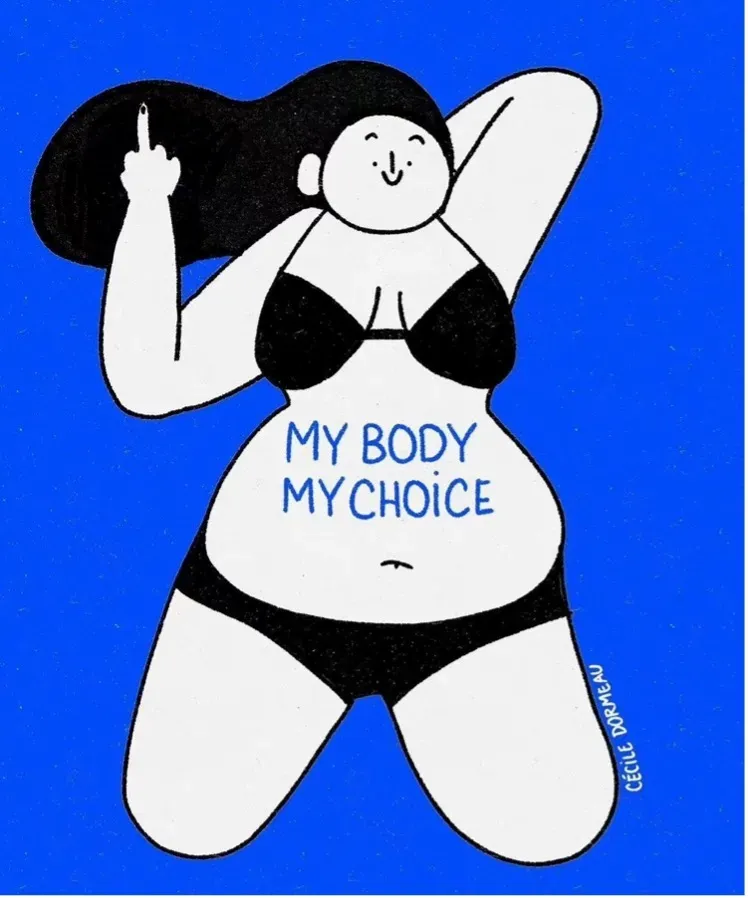
In recent years, the concept of "she economy" has become more and more popular. In the 2021 Double Eleven that just passed, women accounted for 71% of the consumers who participated in the two rounds of Taobao Double Eleven. In daily life, women also shop more frequently than men. The data shows that the average monthly shopping frequency of women is 7.2 times, which is much higher than that of men's 5.5 times. 6% of women shop almost every day. And the categories of women's consumption are mostly related to "body". On the day of Double Eleven in 2021, whether it is beauty and personal care, clothing accessories, shoes, boots, bags and mother and baby toys in the top 10 categories in terms of sales, or private parts care and beauty and body equipment in the top 2 categories in terms of year-on-year growth rate, it can be reflected. at this point.
Baudrillard believes that the capitalist society has entered the consumption society from the production society, and the consumption constitutes the dominant logic of the society. He pointed out that consumption is manipulated by symbols, and consumption itself constitutes a field of meaning, which is the deep logic of the consumer society. People consume the symbols behind the commodities and acquire the meanings woven from the symbols through consumption behaviors.
Merchants are constructing meaning for female consumers, and it first sets a highly singular standard of beauty . Snake face, big eyes, red lips, right-angled shoulders, A4 waist... This highly unified aesthetic paradigm, borrowed from what Benjamin said when he criticized mechanical reproduction art, has disappeared. At the same time, this requirement is getting higher and higher, even starting to ignore specific racial, regional and cultural differences, showing a global unity. Thin, youthful, smooth skin is becoming the norm in commercials. A previous advertisement for Snowz, a whitening product in Thailand, was accused of racism because using dark skin to set off white skin "is the only key to success".
Plus, it's harnessing gratification to tame women in the modern consumer society . It successfully replaces women's definition of satisfaction with the consumption of products such as beauty, skin care, clothing, etc., and replaces the ideal self of women with the object whose skin on the advertising sign has been carefully modified by Photoshop. It accomplishes demand creation in the economic sense - setting up a perfect position and using women's psychology to guide their needs.
We have to admit that no one escapes this judgment . In today's visual and virtual culture, there are images of women who are slim enough, beautiful enough, and have smooth enough skin. Every time you open Sina Weibo, you will receive different opening advertisements. Most of them are from popular beauty brands such as Lamer, Estee Lauder, Dior, etc. Next to the product pictures that are carefully lit and shot, you will often see An almost impeccable female figure.
This seems to have become anathema to a mediated society . In the ocean of media information, the role of technological blessings such as Photoshop and beauty cameras has been magnified. They are so pervasive and commonplace that you think that the delicate life of day-to-day marketing on Xiaohongshu and Douyin is reality. The combination of business marketing and social media is turning satisfaction into a bottomless pit. If you don’t open social media like Xiaohongshu, you may never know that your inner double eyelid needs to be beautiful by doing Korean semi-permanent, your nose has the problem of concave base of the nose, and your protruding mouth needs orthodontics because it affects the appearance Correction. These medical jargon-like discourses form a kind of linguistic and symbolic violence that draws the recipients of media information into a frenzy of appearance anxiety.
However, the body is socially constructed, and there is no so-called natural body and appearance. Perhaps, we should change the unreasonable beauty requirements and make the definition of beauty broader and more diverse . Only on this basis can we further break the abduction and discipline of women by consumerism.

Text | Reviewer Group Around the Furnace
Figure | From the Internet
Draft | Christina
Editor | Wu Yuyang
matters editor|Xing Yixuan
Around the Fire (ID: weilu_flame)
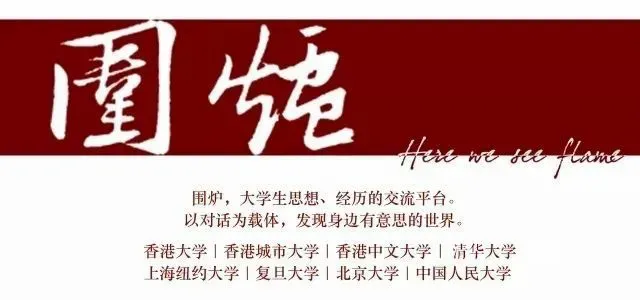
Like my work? Don't forget to support and clap, let me know that you are with me on the road of creation. Keep this enthusiasm together!

- Author
- More